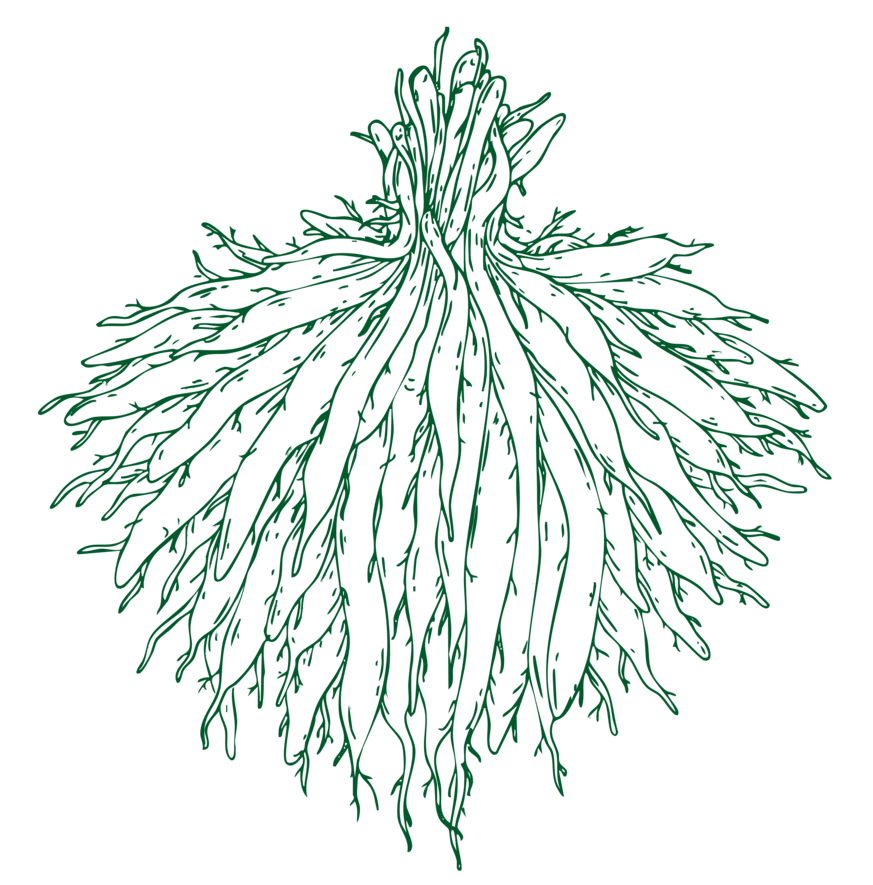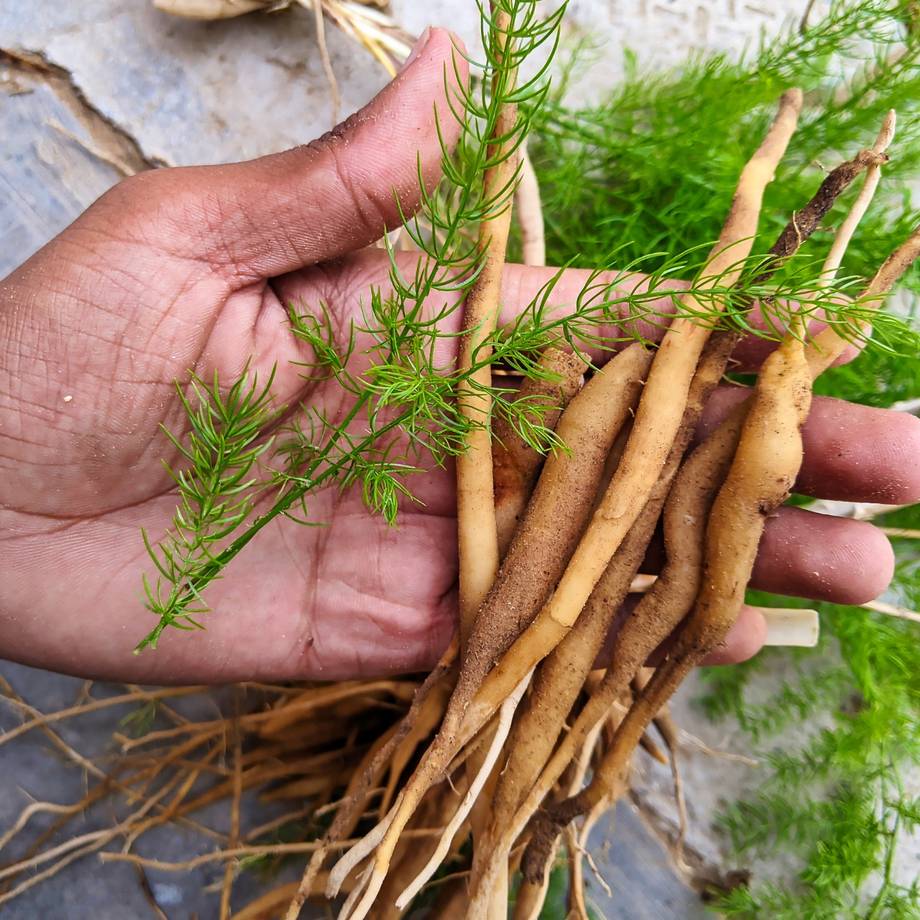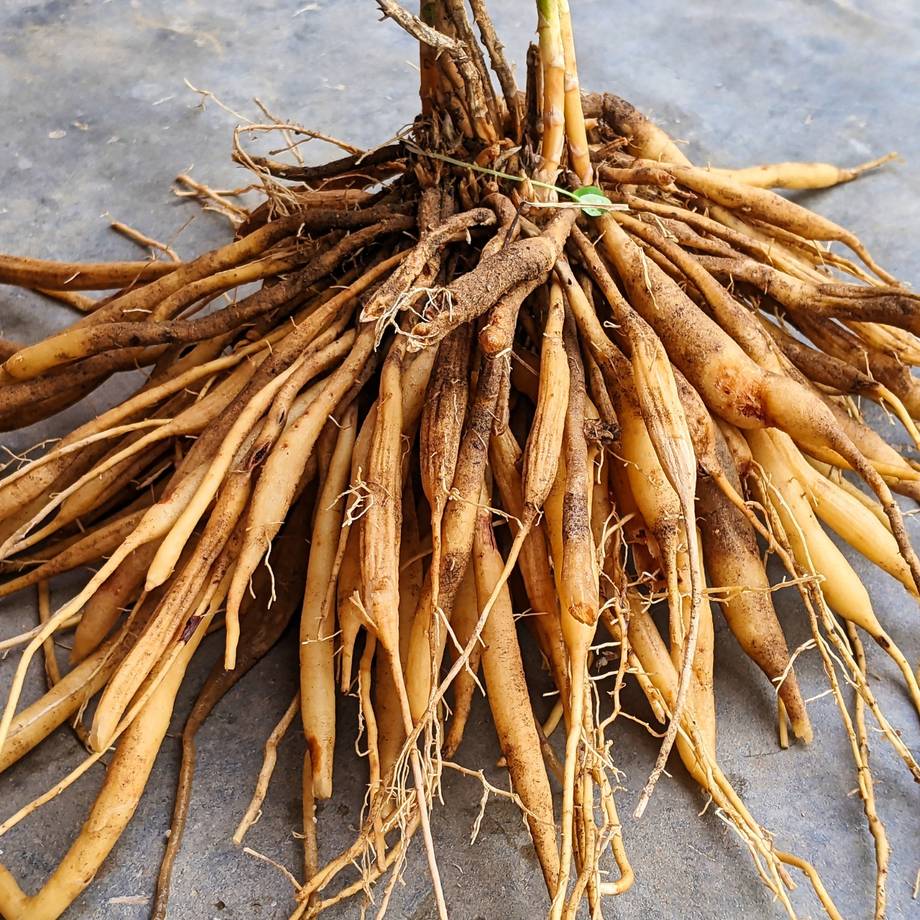
More Shatavari info
Translated as “one with a hundred husbands”, the name Shatavari celebrates the root’s traditional support for reproductive strength and vitality.*

In Ayurveda, Shatavari is considered a rasayana—a class of rejuvenative tonics historically believed to promote vitality and overall well-being. Traditionally used to nourish and balance the female reproductive system, Shatavari has long been embraced by herbalists for its ability to support women through various life stages. From encouraging healthy lactation during the postpartum period to offering gentle support during menopause, this adaptogenic root is known for its ability to help the body adapt to physical and emotional stress while promoting a sense of grounded resilience.*
Beyond its traditional uses, modern research has begun to explore Shatavari’s potential antioxidant and anti-inflammatory properties. These actions may contribute to its soothing effects on the digestive system. Whether used to support reproductive health, ease transitions, or simply encourage a sense of balance and vitality, Shatavari remains a treasured herb in Ayurvedic practice—one that continues to inspire wellness in those who seek harmony and restoration from within.*

Shatavari holds a place of praise in the ancient wisdom of Ayurveda, where it is celebrated in foundational texts like the Charaka Samhita and Sushruta Samhita. These revered writings commend Shatavari for its deeply nourishing qualities—especially its ability to support reproductive health, promote vitality, and encourage breastmilk production in nursing mothers.*
In Ayurvedic practice, Shatavari is often combined with other herbs to create synergistic formulas tailored to specific needs. Its versatile nature makes it a trusted ally not only for women but for anyone seeking to build strength, support the nervous system, and cultivate long-term wellness. Rooted in thousands of years of herbal tradition, Shatavari continues to be a cherished botanical in the art of holistic healing.*

Shatavari, a close relative of garden asparagus, is a cherished plant in traditional herbal medicine. While both belong to the genus Asparagus, shatavari distinguishes itself from the familar vegetable as a woody, climbing vine adorned with delicate, fragrant white flowers. Shatavari is native to the seasonally dry biomes of tropical and subtropical India, Sri Lanka, and the Himalayas. It prefers cool, shaded environments, but impressively, it can also flourish in arid, desert-like conditions, showcasing its resilience and adaptability. The roots, the medicinally prized part of the plant, are fibrous tubers harvested after two to three years of growth. Their light, creamy color and sweet, moist flavor carry the essence of the plant’s nurturing, balancing properties.
Products that contain Shatavari
Additional Information
Legal Disclaimer:
This statement has not been evaluated by the Food and Drug Administration. This product in not intended to diagnose, treat, cure, or prevent any diseases.
Become an Herb Nerd & Get 10% Off!
Herbal tidbits, DIY plant projects, exclusive discounts, and recipes to follow the seasons delivered straight to your inbox.



